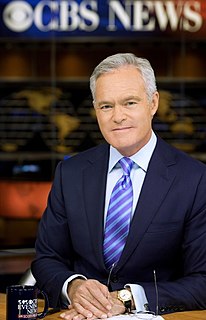A Quote by Russell Baker
There is a growing literature about the multitude of journalism's problems, but most of it is concerned with the editorial side of the business, possibly because most people competent to write about journalism are not comfortable writing about finance.
Related Quotes
A lot of people involved with celebrity journalism have interesting ideas about the people they want to write about going into the interview. Then as soon as they actually sit down with that person, they basically ask the questions they think journalists are supposed to ask, and they start viewing themselves almost as a peer of the subject. Like they're going to become friends. That's why most celebrity journalism is so terrible.
I've always been a writer. I started getting paid for writing in college. Where it transitioned from commentary to journalism was in that shift - not wanting to write personal stories because people are hungry in not necessarily great ways for the sexy, sexy, sex work story. I was trying to shift the focus, and journalism was the tool I needed to write about people outside my own life and range of experience.
I feel like a lot of people involved with celebrity journalism have interesting ideas about the people they want to write about going into the interview. Then as soon as they actually sit down with that person, they basically ask the questions they think journalists are supposed to ask, and they start viewing themselves almost as a peer of the subject. Like they're going to become friends. That's why most celebrity journalism is so terrible.
A big part of my book deals with the caliber of journalism. Our journalism in general is deplorable, and on elections in particular it's very ineffectual. There are a lot of problems, a lot of them having to do with to problems within the professional code of journalism, which defines its role as the regurgitation of what people in power say. Another big problem is that we allow people with money to basically buy what's talked about in campaigns through running TV ads.
Anyone who does investigative journalism is not in it for the money. Investigative journalism by nature is the most work intensive kind of journalism you can take on. That's why you see less and less investigative journalism at newspapers and magazines. No matter what you're paid for it, you put in so many man-hours it's one of the least lucrative aspects of journalism you can take on.
Every journalism bromide - speaking truth to power, comforting the afflicted, afflicting the powerful - that otherwise would be hopelessly sappy to a journalist of any experience, has become a Twitter grail. The true business of journalism has become obscured because there is really no longer a journalism business.































